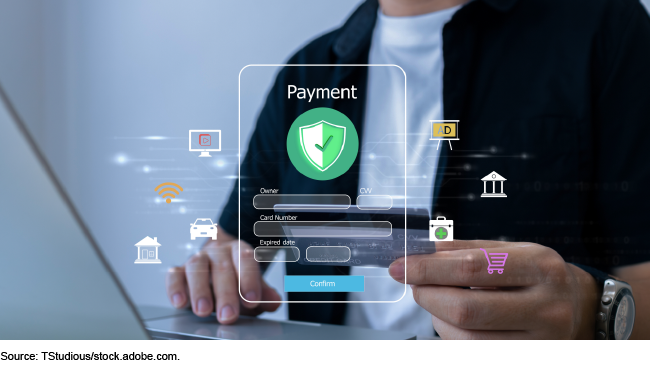Highlights of a Forum: Financial Literacy in a Digital Age
Fast Facts
The growth of online financial products and services has significantly affected consumers' choices, opportunities, and risks. It's clear that consumers need better knowledge and skills to safely use digital financial products and services—and make informed financial decisions.
We hosted a forum with financial literacy experts in June. Among other things, we found that digital products and services:
Can increase access for low-income, minority, and younger consumers
Pose some risk of fraud or scams—with little consumer protection
May test some consumers' IT skills and financial knowledge
Expand options for building financial literacy

Highlights
What Participants Said
Digital technology presents opportunities for greater access and customization of financial education and products for consumers but may pose risks as well. Participants highlighted the following themes during the forum:
- Digital products can generally increase access to financial services. Low-income and minority consumers that may have different cultural norms around finances and banking may benefit from the increased flexibility offered by digital products and services. Participants also noted that digital investment platforms tend to attract younger consumers, who see new opportunities for wealth-building previously seen as out of reach. However, limited access to broadband may hinder accessibility for some consumers.
- Digital products and services offer consumers improved experiences but also pose risks. These products and services enable personalized support, such as through advisers powered by artificial intelligence, to inform decision-making specific to a consumer’s financial situation. However, the ease and convenience of digital transactions can lead to risky behavior, such as investment in crypto assets. Additionally, participants said consumers face increased risks of fraud and scams, including phishing and unauthorized sharing of personal information.
- Consumers face challenges navigating the digital financial landscape. Consumers need both technical skills and traditional financial knowledge to make informed decisions about digital financial services—for example, to detect biased marketing and to avoid scams. Reliable financial information, such as information offered through government sources, is available online but is often underused. Participants noted that many financial technology (fintech) companies offering digital products and services are lightly regulated and consumer protections are limited.
- Digital technology expands options for financial education. It allows for more cost-effective and scalable financial education initiatives using digital channels. Digital technology also creates opportunities for just-in-time education personalized for the consumer. Digital platforms offer diverse formats, such as podcasts and infographics, and can include game-like features like achievement badges, all of which can enhance engagement with educational materials. However, the quality of digital financial education sources can vary, participants noted, ranging from social media influencers to trusted government resources. Traditional schools, a trusted source for education, can also help build financial literacy and related skills.
- More research is needed. Participants agreed that to understand the effects of digital products on consumers, further evaluation of their use and outcomes is essential. However, researchers can face challenges collecting and analyzing data controlled by private companies. Data-sharing agreements between researchers and service providers can mitigate these challenges. Partnerships between the public and private sectors that allow for data sharing and monitoring could also improve efforts to evaluate products.
Why GAO Convened This Forum
Americans face various challenges in achieving and maintaining financial security, especially as digital products and information become more prevalent. The growth of these digital financial services, such as peer-to-peer payment methods, has significantly affected consumers’ financial choices, opportunities, and risks. These developments also underscore the need for digital financial literacy—that is, the knowledge, skills, and abilities to safely use digitally delivered products and services to make informed financial decisions.
On June 12, 2024, GAO convened a group of experts and stakeholders for a forum on how consumers’ financial literacy has been affected by the increased digital offering of products, services, and education. The participants discussed
- opportunities and risks of digital financial services,financial services,
- key skills for navigating the digital financial landscape, and
- digital delivery of financial literacy education. Participants were selected to represent a range of experience and viewpoints.
Participants included 15 experts and stakeholders from the private sector, federal government agencies, nonprofit organizations, and academic institutions. Participants reviewed a draft of this summary. Their comments were incorporated as appropriate. Views expressed during the proceedings do not necessarily represent the opinions of all participants, their affiliated organizations, or GAO.
For more information, contact at (202) 512-8678 or cackleya@gao.gov or Tranchau (Kris) T. Nguyen, (202) 512-7215 or nguyentt@gao.gov.
